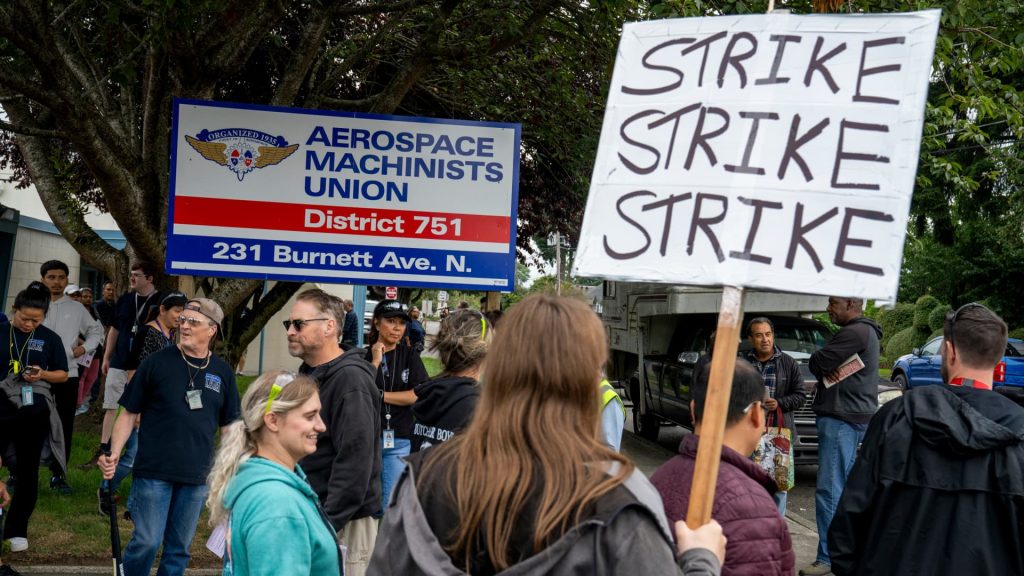More than 30,000 Boeing workers were set to strike Friday, halting production of most of the company’s aircraft after staff rejected a new labor contract.
It’s a potentially costly development for the manufacturer that has struggled to ramp up production and restore its reputation following safety crises.
Workers in the Seattle area and in Oregon voted against a tentative agreement that Boeing and the International Association of Machinists and Aerospace Workers unveiled Sunday. That proposal included 25% wage increases and other improvements to health-care and retirement benefits, though the union had sought raises of about 40%. Workers had complained about the agreement, saying that it didn’t cover the increased cost of living.
The vote is a blow to CEO Kelly Ortberg, who has been in the top job for five weeks. A day before the vote, he had urged workers to accept the contract and not to strike, saying that it would jeopardize the company’s recovery.
The ultimate financial impact of the strike will depend on how long it lasts.
Jefferies aerospace analyst Sheila Kahyaoglu estimated a 30-day cash impact from a strike could be a $1.5 billion hit for Boeing and said it “could destabilize suppliers and supply chains.” She forecast the tentative agreement would have had an annual impact of $900 million if passed.
Boeing has burned through about $8 billion so far this year. Production has fallen short of expectations as the company works to stamp out manufacturing flaws and faces other industry-wide problems such as supply and labor shortages.
A blowout of a nearly new Boeing 737 Max 9 at the start of the year has brought additional federal scrutiny of Boeing’s production lines.
This is breaking news. Check back for updates.
Read the full article here




